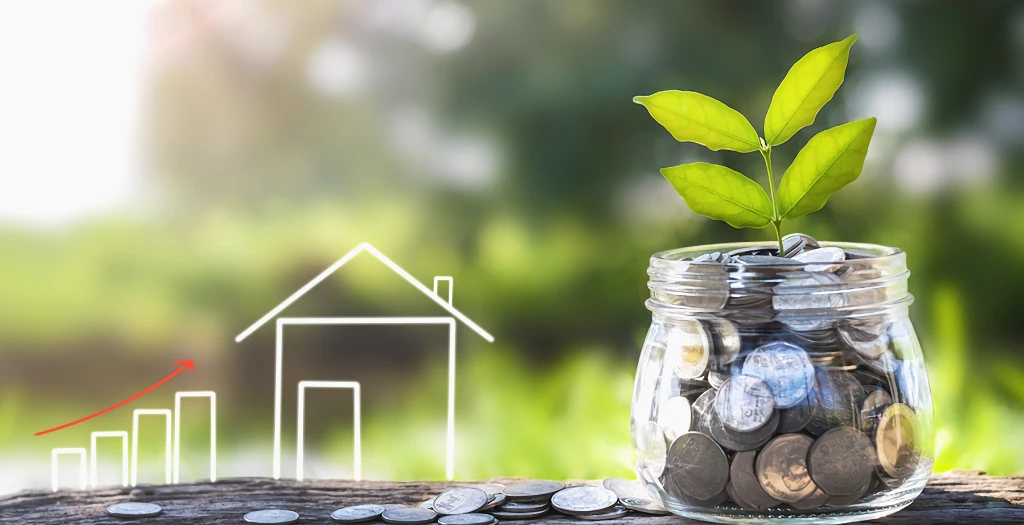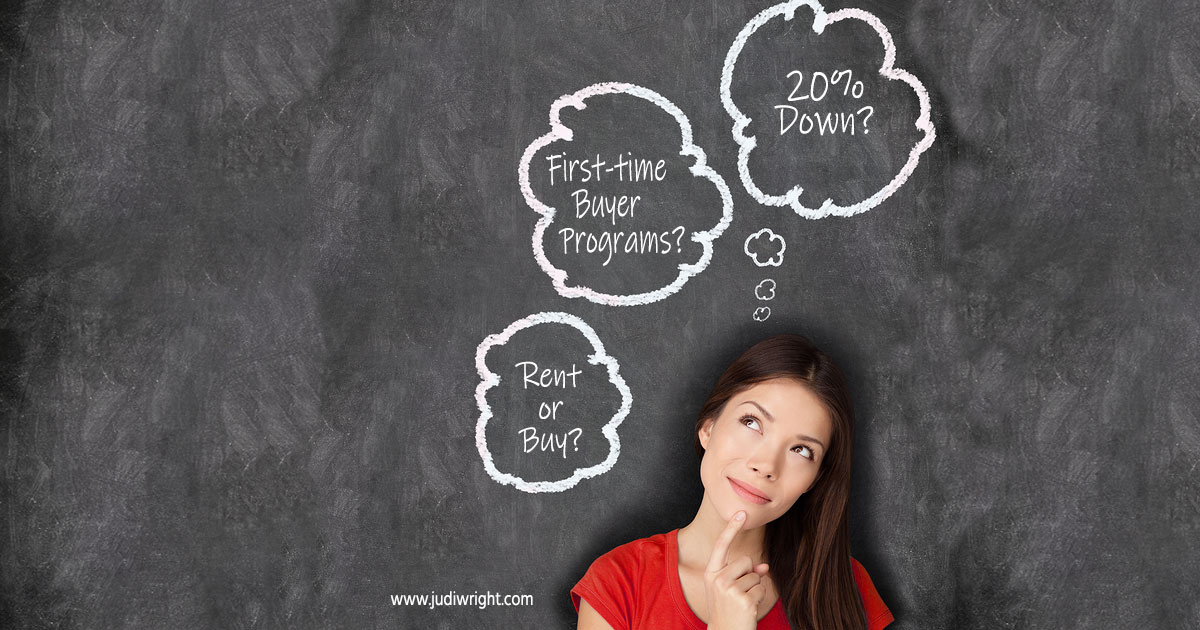
Should you consider resale value when buying a new home?
Buying a new home is an exciting time. So many possibilities to explore, so many options to consider.
As a real estate agent, I get asked many questions from new home buyers. One of the most frequently asked questions is ‘should I consider the resale value when purchasing a new home?’ My answer? Yes!
For many buyers, a home can be one of the largest purchases in their lives. So, you are right on the money to think about your new home as an investment rather than just a purchase. Investments are assets that are intended to grow in value over time.
While the decision of which home to buy will depend on many factors about your family’s needs and situation, thinking about resale value when purchasing a new home is a smart move your part.
What if you plan on staying in the home for many years- is resale value still important?
Again – yes!
We live in a fast-paced world today and things can change quickly. Even if you plan on planting roots in one location, sometimes changes in a career or family structure, for example, can alter even the best-laid plans. So, thinking about resale value can only strengthen your position if-or-when life’s little surprises sneak up on you.
Getting started
Before you start the house-hunting process, prepare a list of the most important features you want. This will be your primary list to guide your decisions on which homes to look at.
New Home Buyer Resources:
Some other resources you might find helpful.
Timeless features that increase resale value
When thinking about features that increase a home’s resale value, we looked at it from the buyer’s perspective to first, determine the most common demands. Then, of these common demands, we looked at which ones are most likely to yield a higher resell value either now – or down the road. Our list of features is based on:
- Features are timeless– meaning they are in high demand now and will continue to be in demand for years down the road
- Features are shown to increase value of home based on industry research and home sales data
Home Location
Ah, yes. The age-old advice of choosing the best location while buying. As clichéd as it seems, it matters.
Choosing a home in a desirable location continues to be the best investment advice. Most neighborhoods and communities change over time as urban sprawl continues, or as new businesses move into communities. And this can certainly have an impact on the desirability of a home’s location. But, there are some location factors that continue to be appealing to home buyers. These macro-location factors include access to:
- Airports
- Major hospitals
- Restaurants
- Schools
- Shopping malls
- Transportation systems
Another factor to consider is the home’s access to major highways. This one could end up being a double-edged sword if the community’s urban development plan is under par. For example, a home that is desirable now due to its quiet neighborhood could end up being right next to a noisy intersection or major freeway a few years down the road.
Your real estate agent is an expert at helping you look at the potential risks and rewards for these types of factors – don’t forget to ask for their help.
Curb appeal
Having a home that makes you go ‘wow’ when you drive up never goes out of style. According to a survey done by Texas A&M, enhanced curb appeal on average can increase the sales prices by 17%.
When considering which home to buy, take a few minutes to view the home’s curb appeal through a time lens. Is the home’s curb appeal something that will last with proper maintenance and upkeep? Here are a few items to look for:
- Landscaping– look for landscaping designs that are easy to manage and grow. This includes grass that is rich and hearty and native plants that don’t require tons of manicuring and water. And on that note, make sure there is a sprinkler system to help maintain the landscaping. Or at least, the potential to add a sprinkler system without too much expense or disruption.
- Big yards– For growing families, big yards will continue to be in demand. Corner lots typically have a higher resale value because of the extra elbow room.
- Exterior lighting– According to Kiplinger, 90% of buyers have exterior lighting on their wish list. Great lighting will bathe the home in a soft warm glow and increase security.
- Nice trees– Trees are important for a home’s resale value for aesthetic reasons, but also because as they mature they provide shade that can lower energy bills and provide a sense of privacy for the homeowners.
- Well-maintained exterior– Homes that are well-maintained have a higher value for obvious reasons. But, a well-maintained exterior can also be a great sign the home has been taken care of inside and out. Some things are hard to see without a thorough inspection, but poor exterior maintenance can be a warning flag about other potential maintenance issues.
- Roof– A good roof could fall under the well-maintained exterior, but it is important enough to give it some extra space. Not only does a good roof add curb appeal, it is also a good signal that harmful leaks or other maintenance issues won’t be an issue.
Natural lighting
Buyers just can’t get enough natural lighting. Big windows (and lots of them) are a great feature that continues to build in value over time. Natural lighting creates a warm, sun-filled atmosphere that showcases beautiful spaces like no other lighting. It’s also a great mood enhancer—all that Vitamin D coming through the windows and making your rooms come alive! Look for these features that add resale value:
- Big windows in most rooms of the home – especially living areas
- Updated lighting fixtures that act as gorgeous accessories
- Window fixtures such as designer rods that add pizazz
- Wood shutters or shades so homeowners can block out the light when they want
- Energy efficient windows that let light in and keep the heat or cold out – see also #5 below
A good floor plan
Over time, home designs and styles tend to evolve so it’s hard to say that a certain home design will add resale value after so many years. What you can count on to add resale value though are a few amenities and factors that are always in style. A few ‘timeless’ features to look for include:
- Big kitchens– One of the most demanded features is a big, open kitchen. Homeowners love big kitchens that are great for entertaining, and great for hanging out in.
- Open ‘living’ spaces– Whether inviting a few people over or just hanging out with family, big ‘family living’ spaces remain very popular. Over the years, the specific purpose of this space may change – for example from play room to media room, but having space is a key feature that continues to be in high demand.
- Nice size bedrooms and closets– This one is a little tough because bedroom sizes can vary dramatically, but bigger bedrooms and closets are typically much easier to sell than cramped spaces. Unless the bedrooms and closets are extraordinarily large, you may not get higher resale, but having small bedrooms and closets will make a home harder to sell.
- Good traffic patterns– Can you get around in the home without feeling like you are in a maze? Good traffic patterns give a home a sense of energy and connectivity. Stay away from plans that have satellite rooms which are hard to get to. Unless of course, you really don’t like your mother-in-law.
- Great lots– Front yards and back yards will always be important to home buyers. Many times, our ideal image of home is our family gathered in a backyard next to a grill. If the home doesn’t already have built-in outdoor living spaces, look for homes that will at least yield this opportunity so you can create a perfect space as you live in the home. Lot sizes vary quite a bit depending on the buyer’s situation, but generally, wider lots have higher resale value than long skinny lots.
- Master bedroom with privacy– Homes with master bedrooms away from other rooms are usually preferred. A private master bath is a must, and larger master bedrooms are highly valued. And the closets? As humans, we’ll always chase the elusive giant master closets.
- Low noise from outside– Look for homes that feel somewhat insulated from the outside noise. Even the most beautiful home becomes less appealing if highway noise keeps the homeowners up all night. Homes located in the interior of neighborhoods offer the best safeguard against new construction close to the neighborhood ruining the quiet neighborhood charm.
Solid Construction
Higher quality construction and building processes can help a home retain its value much longer. It may be hard for you to tell just by looking at a home, but there are a few ways to help you in this area. Don’t be fooled by expensive -looking finishes and fixtures. These can often mask poor workmanship that can be very expensive to correct.
First, check out the home builder. Are they still in business? No builder is going to admit to building shoddy homes, but luckily today, there are plenty of other sources to check out a builder. Look up the builder on the BBB site to check for complaints filed, unsolved grievances, and consumer satisfaction over issues that were resolved. Pay attention to the volume of complaints also as this can be a warning sign of dangerous trends with the builder.
In Texas, home builders are not required by law to be licensed, however, some municipalities do require licenses. The better builders usually are licensed and you can check to see which builders are licensed through the Texas Association of Builders.
Also, check out the home builder’s reviews from previous home buyers. The BBB page will contain information about complaints, and you can search for the builder’s reviews on sites such as Yelp, Google, as well as formal sites such as Consumer Affairs.
When checking out the construction quality of the prospective home, here are a few critical areas to focus on:
- Quality brick or exterior, not veneer
- Crack-free foundation
- Adequate Insulation
- Roof
- Quality, energy-efficient appliances, and equipment (such as HVAC systems)
- Quality windows and doors with high energy-efficiency ratings
Energy efficiency
Did we mention energy efficiency yet? An energy efficient home is a great feature to look for and ranks high for the resale value. The cost of energy is not getting cheaper in our foreseeable future so this one is a great place to spend time and energy (sorry for the pun) checking out. Look out for energy efficiency in:
- Appliances
- Doors
- Insulation
- Lighting and cooling equipment
- Windows
The U.S. Department of Energy has an online resource, Energy Saver the gives an extensive account on conducting an energy efficiency check on your own.
So, in summary – considering the resale value of your future home is a smart move on your part – no matter when you plan on selling. Your real estate agent is a great source for providing more details and insight around a home’s potential resale value. Don’t forget to run your lists and questions by your agent and tap into their valuable experience.
If you want to talk to a professional before starting your house-hunting journey, The Judi Wright Team is here to help!
About the Judi Wright Team
Judi Wright/The Judi Wright Team is a real estate group specializing in the suburbs of Frisco, Plano, and surrounding areas. Named the “Best Realtor in Dallas,” by D Magazine eleven times and a Five Star Realtor with Texas Monthly, Judi is also a Company-Wide Top performer with Ebby Halliday and the #1 Top Small Group for Ebby Halliday Frisco.









